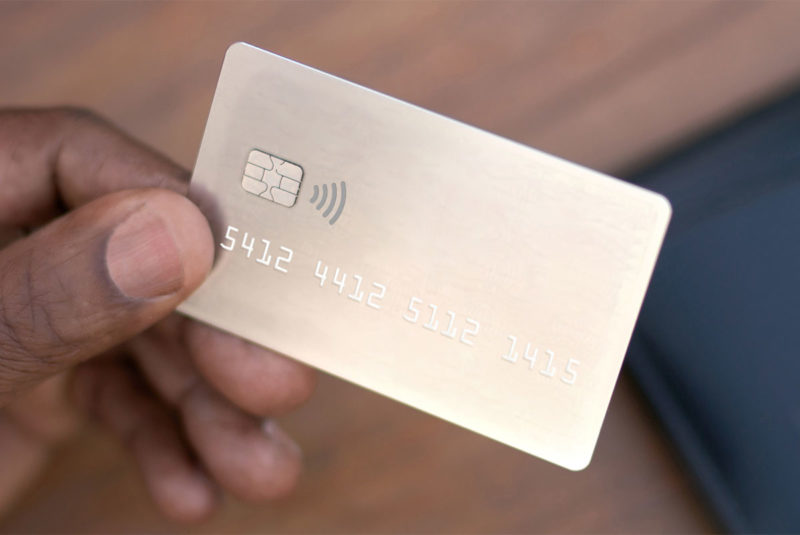No one wants a late or missed credit card, auto loan or student loan payment on their credit report. Missed or late payments can inflict significant damage on a credit score.
And once a late or missed payment hits your credit reports, it stays there for 7 years.[1] That’s a long time to deal with a payment you may have innocently forgotten to make.
If you have a good payment history with your creditor or lender, there is hope – no matter how small – in the form of a goodwill letter.
What Is a Goodwill Letter?
A goodwill letter is your attempt to convince creditors and lenders to remove a late or missed payment from your credit reports. As the name suggests, the letter banks on the goodwill of financial institutions to remove an out-of-character financial misstep from your credit history.
But goodwill letters are often the longest of long shots. They can work, but there’s no guarantee your lender or creditor will exercise their goodwill and agree to remove a legitimate missed or late payment from your credit reports.
But your odds of success shouldn’t stop you from writing the letter. If you have a legitimate reason backed up by a stellar payment history, a lender may surprise you and remove damaging information from your credit reports.
How a Goodwill Adjustment Letter Works
Maybe you missed a credit card payment because you lost your job. Maybe you were late on your loan payment because you were recovering from a long-term illness and couldn’t work or had to work less.
Write a goodwill letter supported with paperwork that verifies why you missed a payment or posted a late payment. For example, if you missed a payment because you lost your job, include bank statements, pay stubs or a termination letter to prove financial hardship.
Your lender or creditor may remove the financial blemish from your credit reports if they believe a one-time event or unusual circumstance triggered the late or missed payment.
Removing a late or missed payment can boost your credit score almost immediately. And that’s a huge benefit if you’re applying for a credit card or a personal loan. Creditors and lenders use your credit score to help determine whether you qualify for their products and what interest rates they should offer.
When Should You Send a Goodwill Letter?
There are a handful of reasons to consider sending a goodwill letter. Before the letter is signed, sealed and delivered, make sure it was worth writing, well-written and honest. Give your creditor or lender every excuse to consider your request and give it the green light. Show them the steps you’re willing to take to repair your credit and your relationship with the creditor.
Here are a few reasons to write a goodwill letter:
- You moved, and the bill didn’t go to your new address.
- You switched banks, and the payment fell through the cracks.
- You were experiencing financial hardship and couldn’t make the payment.
- You thought the bill was on autopay.
It’s usually best to send a letter soon after the incident occurs. Your speedy attention to the issue may help reinforce the idea that you’re on top of your credit and that this was a one-time mistake.
How To Write a Goodwill Letter
Consider these writing tips to improve the odds of a lender or creditor agreeing to remove a late or missed payment from your credit reports.
How To Write a Goodwill Letter
Find out the name of the individual or department responsible for reviewing disputes and address the letter to their attention. Personalizing the letter may go a long way and show the recipient that you’ve taken the time to navigate the system and learn the process.
Clearly state what you want to happen in the letter. If you want a specific late or missed payment removed from your credit reports, include details about the amount, the original payment due date and the date you made the payment.
Let’s say you don’t believe the incident was your fault, that the problem was an issue with the post office or autopay. You may win some points if you take accountability when necessary and explain the issue politely and respectfully. Remember, you’re asking for a favor.
An essential component of the letter will be the part where you explain that this issue won’t be a problem in the future. If your circumstances have improved – let’s say you got a new job or a raise – highlight that in your letter. It may improve the odds of your creditor agreeing that this specific incident was an anomaly.
Goodwill Letter Template
Feel free to use our comprehensive sample goodwill letter or base your letter on our template.
[your name]
[your address]
Account Number: [last four digits of your account number]
[date]
Dear [creditor name or department]:
Thank you for the chance to discuss my account with you. My latest [Experian, Transunion, Equifax] credit report shows [a late or missed payment] reported on [date] for my [company name] account.
I am writing to ask you to remove the [late or missed payment] from my credit report as a one-time courtesy. I have a strong repayment record with [company name], have always paid my bills on time and am fully committed to meeting my obligations.
I missed that payment due to [loss of income, medical emergency, move, etc.], but I’ve since [description of how your circumstances have changed]. And as you can see, I have maintained a perfect record of on-time payments since my financial situation improved.
I sincerely believe this solitary incident doesn’t accurately portray my record of repaying my debts on time.
My credit is important to me. I would like to maintain a spotless record, and I know a [late or missed payment] can hurt my credit score. Please consider extending a goodwill adjustment and removing the [late or missed payment] on [date] from my credit history.
Thank you for your time and consideration. Please let me know if you need any other paperwork to help you make this decision.
Best,
[your name]
Goodwill Credit Letter FAQs
Unless they made a mistake – for example, incorrectly reporting an on-time payment as late – most creditors won’t strike a late or missed payment off your credit reports.
It depends on the creditor. Some creditors even include the rules to remove a missed or late payment on their website. Some creditors may not agree to remove a late or missed payment. At most, they may encourage you to build your credit and maintain a healthy credit history moving forward.
They can work. But it will be up to the discretion of your lender or creditor.
Final Thoughts on Goodwill Letters
While goodwill isn’t guaranteed, you miss out on 100% of the shots you don’t take. Write a goodwill letter that gives you the best shot at making a missed or late payment disappear from your credit history. If your creditor turns you down, focus on what you can control: rebuilding your credit the old-fashioned way: one on-time payment at a time.
The Short Version
- A goodwill letter is your attempt to convince creditors and lenders to remove a late or missed payment from your credit reports
- Consider sending a goodwill letter if you missed a payment because of an autopay glitch, a wrong payment mailing address or a financial hardship
- A goodwill letter should include your account number, a detailed explanation for the late or missed payment and your promise that it won't happen again
Consumer Financial Protection Bureau. “How long does negative information remain on my credit report?” Retrieved July 2023 from https://www.consumerfinance.gov/ask-cfpb/how-long-does-negative-information-remain-on-my-credit-report-en-323/




